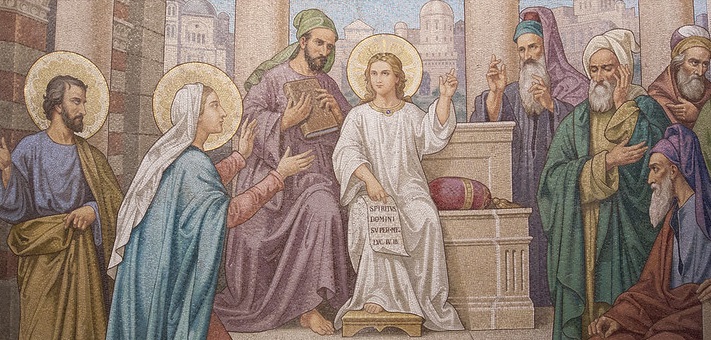Commentary on Colossians 3:12-17
Christmas changes everything! Well, not quite, but it is true to say that the incarnation of the Lord Jesus Christ, which we celebrate during this Christmas season, changes everything. And this passage certainly is centered upon Christ and the profound difference he makes, not just to individuals but to entire communities.
As believers and disciples of the Lord Jesus we are described as “chosen, holy, and beloved.” All these affirmations are rooted in Jesus. Matthew’s Gospel takes up the words of the prophet Isaiah to affirm Jesus as God’s “chosen one” (Matthew 12:18), Peter affirms, on behalf of the Twelve that Jesus is the holy one (John 6:69), and of course the baptismal narratives each remind us that Jesus is beloved. But, these wonderful affirmations about Jesus are placed squarely on disciples of Jesus—chosen, holy (literally set apart), and loved.
It is not unusual to read of clothing oneself within Pauline letters. And here there is a distinct contrast with the character traits listed in 3:5-9. I wonder sometimes whether it is possible to truly abandon negative characteristics without taking on new, positive traits. Certainly here, the encouragement is to undress from the negative, divisive, disruptive characteristics, and to reclothe oneself with “compassion, kindness, meekness, and patience”—the list of five virtues in direct contrast with the double lists of five vices in 3:5 and 3:8.
Compassion is a deep empathy with one other. Kindness is a basic, even fundamental Christian attribute, a clear fruit of the Spirit. Humility is the quality of listening, respecting, engaging, and honoring another. Meekness is the dialing down of personality in cases where others need space to express themselves. Meekness seeks to not trample on others, but to help them up and along. And patience is all about waiting, and waiting for others.
But, however idealistic we might frame these qualities to be, verse 13 makes it clear: yes, of course there will be disagreement and forgiveness will be necessary. It seems unavoidable to draw a parallel here with the conditional words of the Lord’s Prayer: “And forgive us our debts, as we also have forgiven our debtors.” The Lord’s Prayer is the daily confessional prayer for the disciple, and regular acknowledgement of the need for a refilling of the Holy Spirit in order to honor Christ and others in everyday life.
However, all this must be bound together and held by love. As with the encouragement in 3:12 to “clothe yourselves,” here also there is a voluntary aspect. Disciples are not forced to love, but do so in honor of Christ and the Body of Christ. The term “bind” is a familiar term, a simple band, brooch, or fastener which holds everything together. Interestingly, Plato in Republic uses this same term to describe the binding together of communities. That idea is certainly in view here. But, whereas Plato considered that the community is held together by common respect for law, here the believing community is bound together by love. Love is decisive. The Apostle Paul makes this abundantly clear in 1 Corinthians 13:2, “without love, I am nothing.”
The believing community are to choose to let the peace of Christ rule amongst them. Everything therefore, relationships, decisions, and plans, are to be considered in view of honoring the peace of Christ. And there will be struggles at times, rather than settling for the lowest common denominator. But the peace of Christ is the shalom, a wholeness and harmony through the struggles. The term “rule” would be understood as a director or arbiter in matters that need to be decided and agreed. We can reflect here on Aristotle who argued that the Court should administer the law to bring about happiness in communities. But it is the peace of Christ, which is the true path of harmony.
“And be thankful.” Thankfulness is transformative. In the life of any community, differences that are appreciated and given thanks for, make for harmonious relationships. Thankfulness transforms the individual’s outlook and inner life.
And the “word of Christ” is to make its home in each one. The word of Christ here cannot really be pinned down to a single word, but rather the entire teaching of Jesus and the life and character of Jesus. If there is to be a single word, then we might see echoes of John 15 and the word spoken to the disciples to love, which is clearly in tune with our passage today.
Everything is to be done as those who represent the true nature and character of the Lord Jesus. This is what it means to act in the name of the Lord Jesus. Disciples are representative of Christ, and the community of Christ represents his living, incarnate body.


December 26, 2021